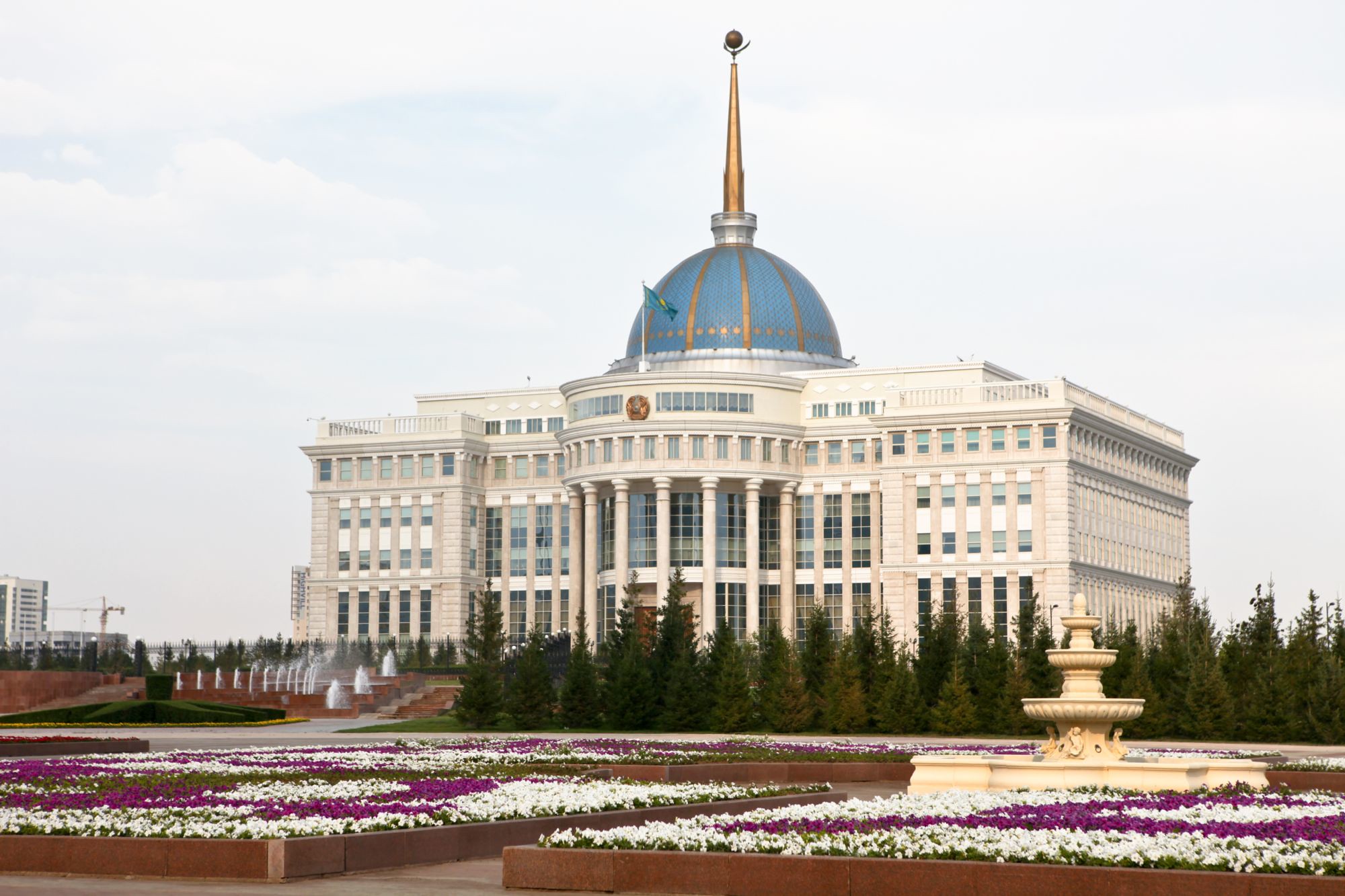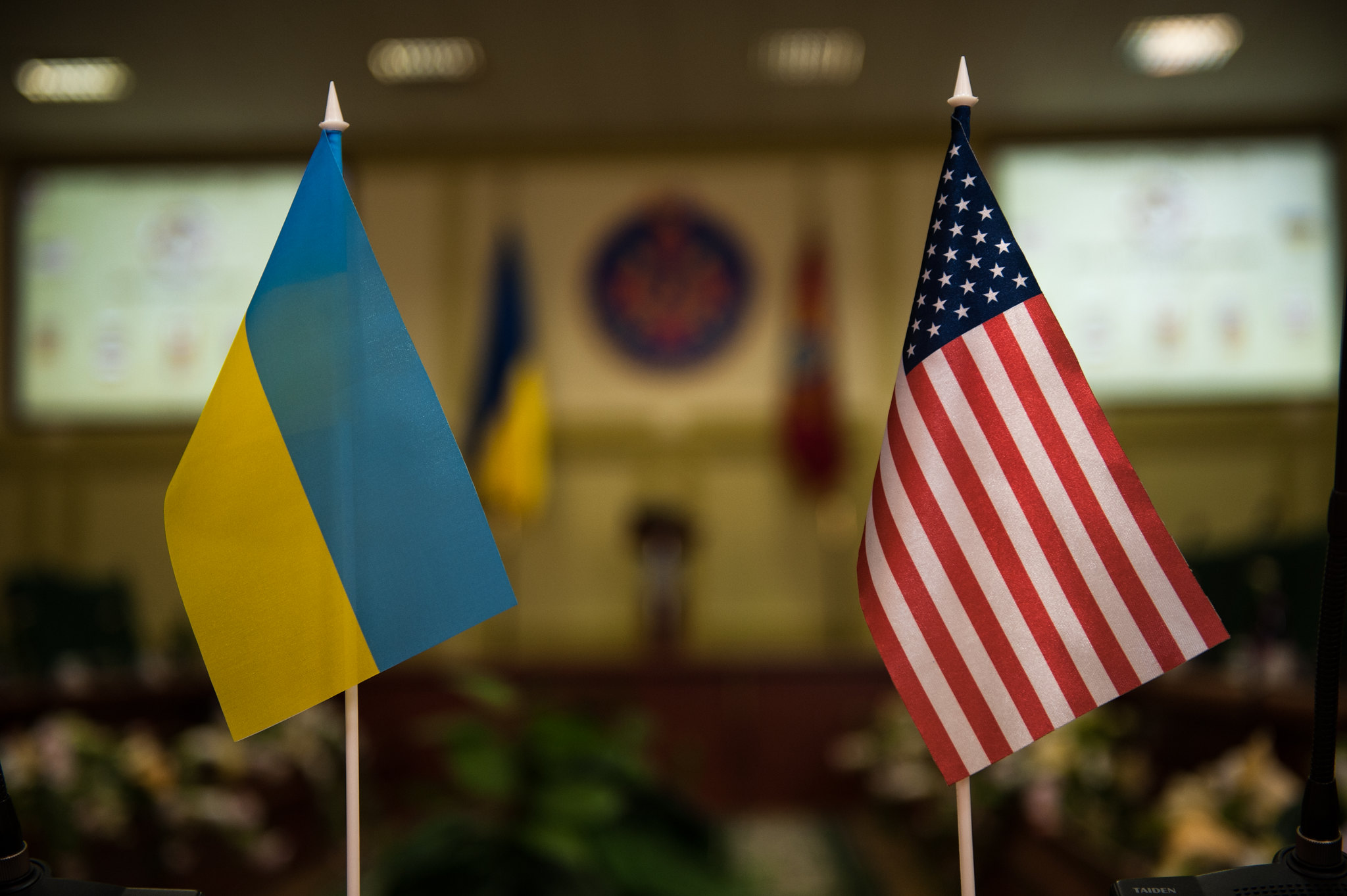Has Kazakhstan Failed Xinjiang’s Ethnic Kazakhs?
For the ethnic Kazakhs caught up in China’s brutal repression campaign in Xinjiang, their national government, once a source of some hope, offers little support.

China’s brutal repression campaign against the Uighurs in Xinjiang, labeled a genocide by the United States, has also implicated the region’s nearly 1.6 million ethnic Kazakhs. Kazakhstan, which shares a long border with Xinjiang, was an epicenter of activism in the early months and years of the crackdown—many of the first victims who testified on the world stage were ethnic Kazakhs who had witnessed the camps and fled to Kazakhstan. This left Kazakhstan’s government, led by authoritarian strongmen but weak in comparison to China’s Xi Jinping, walking a fine line: heeding its compatriots’ calls to support Kazakhs and fellow Turkic Muslims in China without risking China’s immense economic investments in Kazakhstan. But this economic dependence, now at its strongest point in history thanks to Kazakhstan’s central role in the Belt and Road Initiative, has crippled Kazakhstan’s ability to stand up to China, even when advocating against mistreatment of its own compatriots. While at several points in 2017 and 2018 it appeared that the Kazakh government was willing to take a stand against China’s policies in support of ethnic Kazakhs, the past two years have made clear that that trend is definitively over. Far from the safe haven activists hoped it could become, Kazakhstan is now a hostile place for Xinjiang victims.
Beginnings of the Crackdown
Since 2017, China has carried out a brutal campaign of repression in Xinjiang, a majority-Muslim region in the west of China, bordering Central Asia. Uighurs, a Turkic minority ethnic group, make up the majority of Xinjiang’s population with 11 million people, but the region is also home to 1.6 million ethnic Kazakhs and 200,000 ethnic Kyrgyz. (Kazakhs and Kyrgyz are also Turkic Muslims, related to Uighurs in language and culture.) The Chinese government claims that its actions in Xinjiang are combating separatists and promoting “deradicalization,” but the campaign has gone far beyond that. According to some estimates, up to 2 million Uighurs have been detained in “political reeducation camps” in the region. The People’s Republic of China (PRC) has detained Muslims for wearing beards or headscarves, bulldozed centuries-old mosques and cultural sites, and mandated the use of only Mandarin language in public places. Reports from survivors of the camps have revealed exploitative labor practices, widespread torture and sexual assault.
In the early days of the crackdown, news about the extent of the human rights abuses was slow to escape China. Foreigners were expelled from Xinjiang in large numbers in 2017, internet censorship and surveillance intensified, and one of the first “reforms” implemented by the PRC in Xinjiang was to restrict movement and confiscate citizens’ passports. The beginnings of the crackdown came in the form of detentions for transgressions as simple as traveling abroad or corresponding with those outside of the country on WhatsApp (banned in China in 2017) or WeChat, as China viewed those with foreign connections as threats. The Xinjiang “Strike Hard Campaign” (the PRC’s “branding” of security restrictions in the early days of the crackdown) made foreign ties to a list of 26 “sensitive” countries, including Kazakhstan, a punishable offense. Those who had visited Kazakhstan or merely communicated with people there were more likely to be interrogated, detained, and sent to a reeducation camp or to jail.
These policies affected ethnic Kazakhs in Xinjiang especially, as many lived in cross-border extended families and traveled regularly between China and Kazakhstan. This is partially due to Kazakhstan’s policy—in place since the days of the Kazakh Soviet Socialist Republic but codified in the 1990s—of opening its doors to all ethnic Kazakhs living abroad, who are known as “oralmen.” Kazakhstan has especially encouraged oralmen to return “home” in the decades since the fall of the Soviet Union, and it has repatriated nearly 1 million oralmen from across the former Soviet countries and China, fast-tracking them for citizenship once they enter Kazakhstan. This policy left many families divided between Kazakhstan and Xinjiang, as some family members emigrated to Kazakhstan in the 1990s and early 2000s, leaving others behind. Many Kazakh communities in Xinjiang, then, maintained close contacts with former oralmen who had since returned to the homeland.
As the Chinese government began detentions and curbing freedoms in Xinjiang, Kazakhs across the border heard of the arrests of friends and family—or dropped out of contact with them altogether as they were “disappeared” into the system of reeducation camps. Some Kazakh citizens were also swept up in detentions—arrested while in Xinjiang visiting relatives and forbidden from leaving. Many had been born in Xinjiang but repatriated to Kazakhstan—the PRC declared that they had insufficiently renounced their Chinese citizenship and were thus still subject to PRC control.
Resistance Inside Kazakhstan
As news about arbitrary detentions and torture of oralmen living in China began to reach Kazakhstan, independent activists and local leaders put pressure on the Kazakh government to take action.
In mid-2017, news reached Kazakhstan of two ethnic Kazakh imams who had been detained in Xinjiang. One imam was sentenced to 10 years in prison for performing traditional Islamic funerary rights, and the other was detained for unknown reasons and died in police custody, purportedly by suicide. In response to these and other stories, civil society groups began to put pressure on the Kazakh government. In June 2017, the Press Club of Kazakhstan held a meeting of well-known Kazakh writers to petition then-President Nursultan Nazarbayev to take a stronger stance.
The largest campaigner for victims of Xinjiang oppression in Kazakhstan was Atajurt, a volunteer group formed in early 2017. Atajurt, led by Serikzhan Bilash, has been recognized as “one of the most influential efforts detailing China’s internment of Muslim minorities” and the “cornerstone” of foreign media’s reporting on Xinjiang. One former Atajurt volunteer estimated that “70-80 percent of the information [known to the outside world] about the concentration camps came from Atajurt, especially in the early days of the struggle.” The group collected video testimonies from hundreds of Kazakh oralmen fleeing repression in Xinjiang or of relatives of those who had disappeared into the camps. The videos, uploaded to YouTube in English, Turkish, Russian and Kazakh, show the testimony of hundreds of victims, holding ID cards and photos of relatives and tearfully or stoically telling their stories. Atajurt also provided documentation to international human rights organizations and petitioned authorities in Xinjiang and Kazakhstan for help and information.
International journalists and investigators flowed into Kazakhstan in 2017 and 2018 seeking to tell the story of the Xinjiang camps, and Atajurt proved instrumental, despite little international recognition, in connecting them with interview subjects.
The Belt and Road Initiative and Pressure on Kazakhstan
The Kazakh government, however, looked in 2017 as if it was trying to avoid a confrontation with China over the issue. Kazakh state media had not run any stories about detentions in Xinjiang as of mid-2017—news was carried only on smaller independent or internationally funded sites. In November 2017, the Kazakh deputy foreign minister, Aqylbek Kamaldinov, reportedly discussed the issue with his Chinese counterpart. According to Radio Free Europe, Kamaldinov broached the subject of the “frequent complaints by ethnic Kazakhs about problems they face in the People’s Republic of China” and that the subject would also be discussed at the deputy minister’s next visit to Beijing. These discussions, however, fall short of condemning the detentions and show the government walking a fine line between support for its citizens and angering its much larger neighbor to the East.
This reluctance is unsurprising, considering Kazakhstan’s immense economic dependence on China and China’s huge investment in the country through its Belt and Road initiative. It is fitting that Xi chose the Kazakh capital as the site to first announce his plan for a “new silk road” in 2013. That plan, now the Belt and Road Initiative, is a massive infrastructure and investment plan to connect China to the West via a new international shipping route (the belt) and a Eurasian Land Bridge (the road).
Few countries serve to benefit more from the Belt and Road Initiative than Kazakhstan, which will play a central role as the “buckle” of the Land Bridge stretching from China to the European market. Khorgos, previously a sleepy town on the Chinese-Kazakh border in the middle of the steppe, is poised to become the biggest dry port in the world—where freight leaving China will be loaded onto trains for the 5,000-mile journey into Europe. Kazakhstan hopes to turn Khorgos into a “new Dubai” with a special economic zone attracting investors to build factories and warehouses. This plan, which promises to bring new life to Kazakhstan’s flagging economy, is dependent on staying in Beijing’s good graces.
The World Spotlight on a Kazakh Courtroom
One of the most high-profile cases involving an ethnic Kazakh from Xinjiang was that of Sayragul Sauytbay. Sauytbay, an ethnic Kazakh Chinese citizen, crossed illegally into Kazakhstan in April 2018. In China, she had worked at a reeducation camp for ethnic Kazakhs, and she became, while in Kazakhstan, one of the most influential whistleblowers to speak to the structure of the camps.
Sauytbay was arrested after China sought her deportation back to China and put on trial in Kazakhstan in July 2018. At her trial, she made her case that the Chinese government would imprison or torture her if she were returned, due to her divulgence of “state secrets” in talking about the camps.
Sauytbay’s testimony, which described in harrowing detail life and routine inside the reeducation camps, may have been the impetus for Beijing to change its line on the Xinjiang situation. During Sauytbay’s trial, Beijing was still outright denying the existence of any camps in Xinjiang, but Beijing “soon afterward” acknowledged a network of “vocational training camps,” spinning them as part of a deradicalization program.
In August, a Kazakh court, in a “rare and surprising display of justice from Kazakhstan’s judicial system,” decided not to deport Sauytbay and gave her a suspended sentence. This sentence allowed her to be reunited with her husband and children in Kazakhstan and remain in the country while she applied for asylum. Sauytbay’s release coincided with other promising news about the Kazakh government standing up to China. In May 2018, the Kazakh government worked to release 12 Kazakh citizens who had been detained in Xinjiang, a rare instance of direct Kazakh pressure (even if diplomatic) against Chinese treatment of oralmen. Mid-2018 seemed like it could be a turning point—where the Kazakh government would, or at the very least could, assent to sheltering those oralmen and Kazakh citizens who were fleeing detention in Xinjiang.
“This happiness failed to last 24 hours.”
The optimism surrounding Sauytbay’s suspended sentence, however, was short lived. As Sauytbay told the Globe and Mail in 2018, less than 24 hours after she received her sentence she heard news that her sister and two friends still in China were “disappeared” by security forces.
Troubles also followed her in Almaty, Kazakhstan. In an interview, Gene Bunin—an activist, journalist and creator of the Xinjiang Victims Database who was in Almaty during Sauytbay’s trial—told me that within a few days of her trial verdict, Sauytbay was put under an effective “quarantine” by her lawyer and tacitly forbidden from speaking to journalists or activists with Atajurt.
In October 2018, two months after a Kazakh court refused to deport Sauytbay, a different Kazakh court denied her grant of asylum. Her lawyer told reporters that they were “expecting this,” and that they were aware of “what kind of influence China wields on the authorities here.” Bunin said that Sauytbay was under “pressure from the government—people would sometimes come to her house. They were essentially keeping her in a kind of limbo state where they did not give her asylum, so she could always feel like there was a threat that they could send her back.”
Sauytbay remained in legal limbo in Kazakhstan as she twice appealed, and was twice denied, asylum by Kazakh courts. In June 2019, she was offered asylum in Sweden, where she and her family currently reside. The Kazakh government, through Sauytbay’s prolonged asylum fight, was silent on her case.
The aftermath of Sauytbay’s trial made clear that the momentum inside the Kazakh government to stand up to China was over—pressure, whether internal or external, had been applied to squash any further showings of blatant support for Xinjiang victims. Bunin described the Kazakh government’s stance toward Sauytbay as one the earliest experiments for a type of balancing act: “They kept being forced to make these compromises where, for example, they would say, ‘we won’t deport somebody, but we’ll make sure that they don’t speak out while they are in Kazakhstan and they won’t go around giving interviews.’” Bunin believes that the Kazakh government “could not publicly support something that was so internationally unpopular as the mass incarcerations [in Xinjiang], but at the same time they could not publicly go against China.”
In response to a Human Rights Watch query less than a month after Sauytbay’s first trial in August 2018, the Kazakh Ministry of Foreign Affairs wrote of a “fruitful cooperation” between China and Kazakhstan. The ministry, despite the damning testimony that had just been heard in Sauytbay’s trial, writes approvingly of China’s overall treatment of ethnic Kazakhs as “pursu[ing] an appropriate policy to support ethnic minorities.” The letter does not respond to questions about detentions of Kazakhs in China other to say that the Kazakh Ministry of Foreign Affairs “periodically receives appeals concerning ethnic Kazakhs living in the PRC” and “conducts negotiations with the Chinese party with regard to such appeals.”
The next domino to fall in Kazakhstan was the detention of Bilash, head of Atajurt, by Kazakh security forces. Kazakh government forces increased their scrutiny of Atajurt in early 2019, raiding their offices, interrogating staff on several occasions and fining Bilash the equivalent $670 for leading an “unregistered organization.” Bilash was formally arrested in March 2019 and charged with “inciting hatred,” facing up to seven years of imprisonment. He was held under house arrest for several months and allowed very limited contact with his lawyers and supporters. In August 2019, in a trial that drew crowds of protesters supporting Atajurt, Bilash struck a plea deal—accepting guilt and pledging to stop his activism and sever connections with Atajurt in return for his freedom.
In the aftermath of Bilash’s plea deal, Kazakh authorities set their sights on Atajurt. Government loyalists officially registered a splinter organization, also called Atajurt, and unsuccessfully attempted to wrest control of the YouTube channel where Atajurt’s victim testimonies are shared. This Atajurt was staffed by members loyal to the Kazakh government, who took a softer stance toward China. Bilash, in turn, fled to Turkey and began a new organization—Naghyz (the real) Atajurt.
“China incarcerated one of my sons, Kazakhstan jailed another.”
From 2019 on, the Kazakh government’s official line has grown only friendlier toward Beijing. In March 2019, after a meeting of foreign ministers, China’s Ministry of Foreign Affairs released a statement thanking Kazakhstan for their “understanding and support for China’s position [in Xinjiang].” Later that year, the Kazakh foreign minister appeared to wash his hands of the entire situation in Xinjiang, stating in October that “there are no Kazakhs now” in the camps. The statement did not acknowledge the fate of ethnic Kazakhs who had been detained previously. Atajurt volunteers outright denied the truth of the statement, responding that they were aware of at least a hundred ethnic Kazakhs still detained in the camps.
Other asylum-seekers who have crossed into Kazakhstan from China are still at risk of detention or deportation. Human Rights Watch has chronicled the cases of at least five other ethic Kazakhs from Xinjiang who have been arrested in Kazakhstan since 2019 and put on trial in much the same way as Sauytbay. Unlike her highly public trial, however, the current proceedings have been kept under wraps by the Kazakh justice system. Trial dates have been postponed repeatedly, and one hearing was adjourned after only two hours, despite a large number of would-be witnesses ready to testify. Earlier this year, two asylum-seekers from Xinjiang were violently attacked in Kazakh cities, and police reportedly refused to help them.
Kazakh authorities have also targeted peaceful protests. One Kazakh citizen who picketed outside the Chinese Consulate in Almaty, seeking information about a family member missing in Xinjiang, was arrested and served 10 days in jail. His mother then began a protest of her own against the treatment of her children by authorities in China and Kazakhstan alike. Outside the Chinese Consulate in February, she chanted, “China incarcerated one of my sons, Kazakhstan jailed another.” To date, this protest has been ongoing for nearly two months, but the emaciated network of activists inside Kazakhstan has left it much less impactful than earlier demonstrations. Bunin believes that the Kazakh government is now openly trying to “stifle” all protest movements within the country.
Where Can the Persecuted Flee?
With Kazakhstan unwilling to grant either political asylum or the space to speak freely to victims of the camps in Xinjiang, refugees have increasingly looked abroad for home bases. Many have found one in Turkey, which has an estimated population of 45,000 Uighurs.
Turkey was one of the first Muslim countries to condemn China’s treatment of minorities in Xinjiang and demand that it close the detention camps. In retaliation, China shuttered its Istanbul consulate temporarily and threatened further economic retaliation. Turkey also has a history of sticking up for Muslim minorities in China—it called Chinese treatment of Uighurs a genocide in 2009, after earlier Chinese crackdowns on opposition protests in the region. Turkey, not a crucial player in the Belt and Road, and with its own spheres of influence abroad (notably in Cyprus and Azerbaijan), did not kowtow to China so readily.
In the past year, however, that dynamic has shifted. Turkey’s economy has weakened and the country is now increasingly dependent on China for delivery of the Chinese-made coronavirus vaccine. Controversy erupted in Turkey in December 2020 after a shipment of Sinovac vaccines to Turkey was abruptly delayed—critics say that the delay resulted from Beijing pressuring Ankara to sign a 2017 extradition deal in return for the shipment. Experts speaking to Voice of America claim that the extradition deal endangers Uighur refugees in Turkey and warn that Beijing is attempting to use its vaccine delivery leverage to put further pressure on the Uighur diaspora in Turkey.
Turkish President Recep Tayyip Erdogan in January cracked down on some Uighur protests outside of Chinese government buildings in Ankara and Istanbul, citing security and coronavirus concerns. The Justice and Development Party (AKP), Turkey’s ruling party, still maintains that they support Uighurs inside Turkey, stating last month their “deep concern” for the plight of “Uighur Turks” within Xinjiang. Despite that statement of support, it was AKP opposition that blocked a motion in the Turkish parliament this month that would have labeled Chinese treatment of Uighurs a genocide. Even Bilash, after safely living in, and running Atajurt from, Turkey for a while, has left the country and now lives in the United States.
Conclusion
Ethnic Kazakhs make up a small minority of those who live in Xinjiang. Their stories are told disproportionately in reporting about the Xinjiang genocide because, unlike the millions of Uighurs, they have a national government outside of China and are more likely to have family connections abroad. The fact that Kazakhs have national spokespeople beyond China has shed a light on their plight specifically, but it has also highlighted the enormous difficulties countries confront when face to face with China. Even when the stakes were as high as the arbitrary detention, cultural eradication or death of its own compatriots, Kazakhstan was unable or unwilling to confront China’s human rights abuses.
The U.S. and other Western countries have become more vocal about the Xinjiang crisis in recent years, with the U.S. declaring the situation in Xinjiang a genocide earlier this year. But some observers claim the U.S. can do more—a February op-ed in Foreign Policy argued that the Biden administration should list Uighurs as a priority group for resettlement and asylum in the United States and prioritize diplomacy with countries like Kazakhstan and Turkey, where those fleeing Xinjiang risk mistreatment. Such interventions are the most surefire way to ensure that, if nothing else, victims who can testify to the horrors and human rights abuses of Xinjiang are protected and that their evidence and testimony are preserved.




.jpg?sfvrsn=31790602_7)
